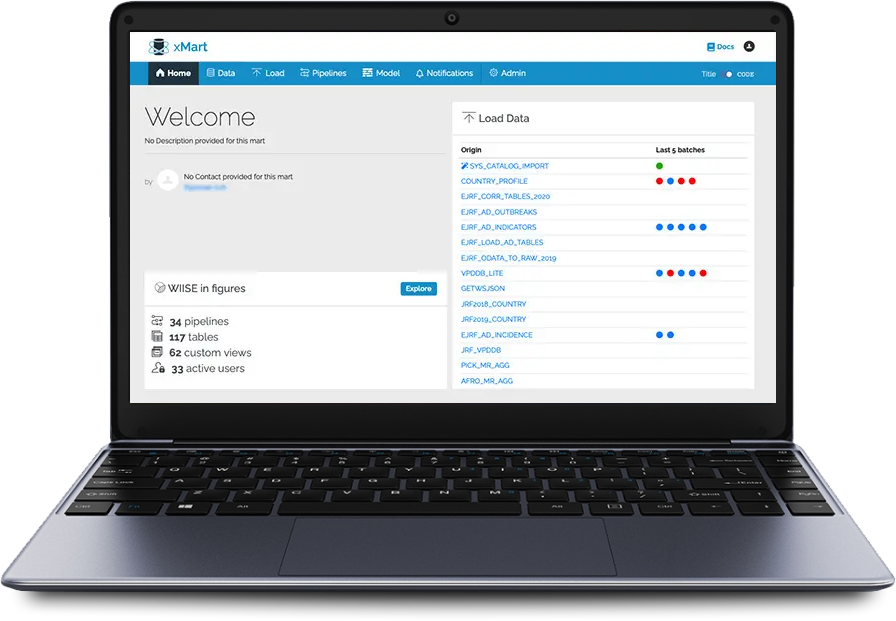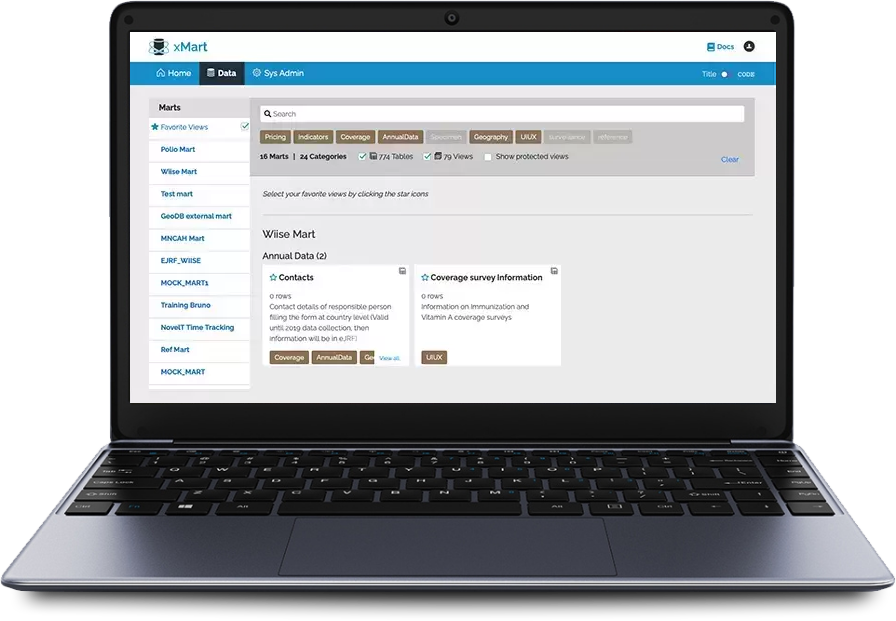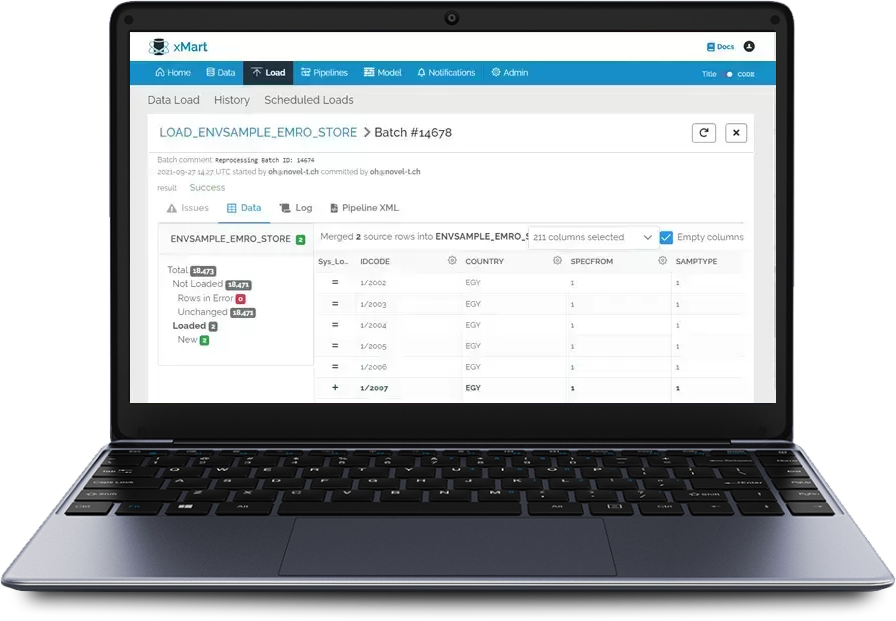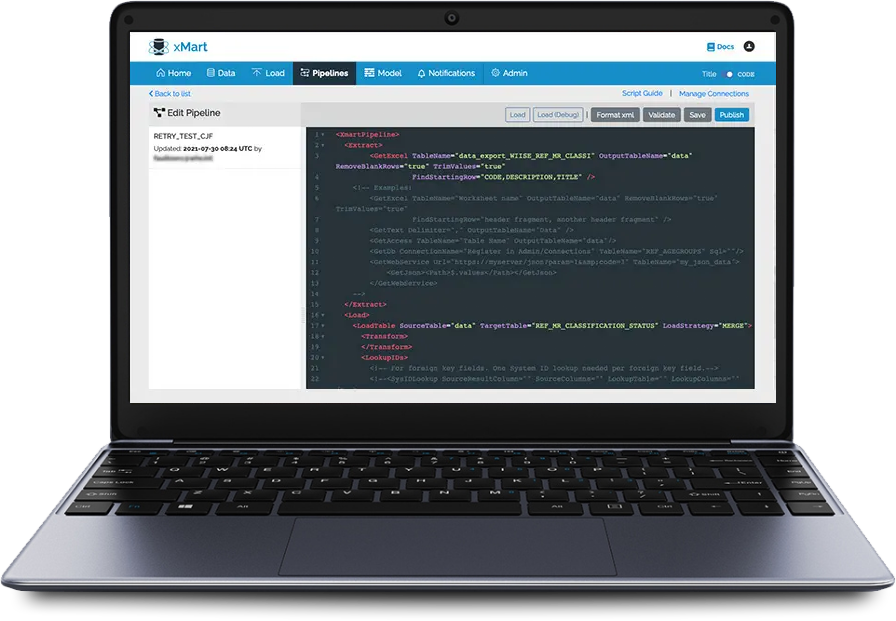Objectives
Build a secure web-based platform to:
- Increase autonomy of data managers and reduce reliance on software engineers
- Harmonize and centralize the datasets collected from multiple heterogeneous sources into a single harmonized datasets
- Encourage data sharing and attribution
- Provide tools to visualize the new data
- Keep a complete revision history for all data transforms and loads
Description
The xMart platform allows data managers to create standard data models, manage master/reference data, set up data ingestion pipelines to extract and ingest data received in various file formats or retrieved from remote sources, clean and process the data, preview/approve/reject the changes, warehouse the data in standardized virtual “data marts” and securely disseminate the harmonized data; and all of that without having database administrator, SQL or software engineering skills.
Curated data is stored in a regular relational database, which can be easily analysed and disseminated using common Business Intelligence tools such as PowerBI. The central data repository allows the organization to produce complex analysis across multiple datasets.
66
2.3K
1K+

Geographic deployment
xMart is a WHO corporate solution which supports data managers at the Headquarters and in the Regional Offices
Context
Data management is often a key challenge for large organizations that carry the burden of periodically processing, cleaning, curating and harmonizing datasets collected in different formats from multiple heterogenous sources. Data managers spend a tremendous amount of time doing this tedious work manually and repetitively.
Some organizations have invested in automating recurring data management tasks using traditional Extract Transform Load (ETL) tools. Unfortunately, it is not scalable to depend on software engineers to modify ETLs for each new data cleaning challenge.










